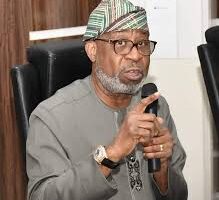About a month ago, former Governor of the Central Bank of Nigeria (CBN), Malam Sanusi Lamido Sanusi was coronated as the new Emir of Kano after the death of Alhaji Ado Bayero. He was battling his suspension from office by President Goodluck Jonathan, when the death of Ado Bayero was announced and he was chosen as the new Emir of the ancient city.
Many have described him as a man of destiny since he ascended the throne. This article was first published on February 24, 2014 and is being repeated today to show that we may not need to
fight certain battles, if we know God’s plans for us. He would not have had to engage in needless battle over his suspension if he had known that his ascension to the throne would be as fast as this. Enjoy it!
When the reported face-off between President Goodluck Jonathan and the suspended governor of the Central Bank of Nigeria (CBN), Malam Sanusi Lamido Sanusi began a few months ago, little did Nigerians expect that the battle was going to escalate into a full blown war.
One will not be so far from the truth to say that the development seems to be the most embarrassing moment of President Jonathan’s government, when Sanusi reportedly refused to resign as advised by the President.
In a political system, where the President’s power is not just overwhelming but also overbearing, Sanusi was said to have told Jonathan point-blank that the President could not remove him from office without the approval of the Senate. Section 11 (7) of the CBN Act 2007 as amended does not empower the president or anybody else to suspend the CBN governor, the Act only empowered the President to remove the governor, subject to the approval of two-third majority of the Senate.
The suspension was not only suspicious, it was ill timed. As a matter of fact, it is also disturbing that a government that claims to be serious about fighting corruption would not take Sanusi`s allegation against the Nigeria National Petroleum Corporation seriously.
Maybe we should ask ourselves this question, what crime did Sanusi commit by raising an alarm over a matter of public interest? If you are accused of any wrong doing, the best thing you are supposed to do is to explain yourself to prove your innocence; responding by fighting back
in the manner the president has done, says a lot about the current administration’s commitment to fight corruption.
Sanusi had alleged that the NNPC cannot account for about $20billion oil money. Sanusi blew the whistle of the disappearance of billions of dollars from the public treasury; he was not only suspended but also threatened with arrest. As far as the law goes, the purported suspension of the governor is unwarranted. Section 11 of the Central Bank of Nigeria Act, 2007 clearly lists the instances when the Governor or any of his deputies can cease to remain in office.
For the avoidance of doubt, whatsoever, none of such instances include suspension by the President. The only mention of the word ‘suspension’ is in section 11(1) (d) and that relates to the removal of the Governor when he or she is disqualified or suspended from practicing his or her profession in Nigeria. Of course, the illegal suspension of the governor is
not from a professional body and is not at all contemplated by the law. It should be pointed out that the only occasion the President can recommend the removal of the
Governor or exercise any disciplinary control over him is under section 11(1) (f) and that recommendation must be supported by two-thirds majority of the Senate before he can be removed. Now the law is unquestionably clear that the express mention of one thing is the exclusion of the other. In other words, if the law had intended that the President exercises the power of suspension over the Governor of the Central Bank, it would have expressly stated so, particularly as the same law provides for the removal of the Governor based on his suspension from professional practice.
The purported removal of the Governor of the Central Bank is a continuation of the atrocious illegalities perpetrated by the present administration. From Salami to the serial acts of infamy imposed on the people of Rivers state and now to Sanusi, one can say without any fear or favour that the cup of illegalities of this administration is full.
If we don’t act now, we don’t know whose turn it would be next. We must challenge the desecration of the laws of our country by its chief custodian. The Senate must view the so-called suspension of the Governor for what it is, a naked usurpation of its powers and privileges. There is no room for illegal removal of the governor through the back door.



